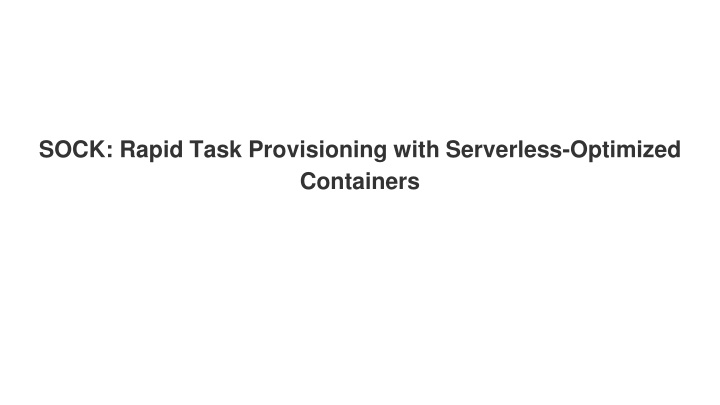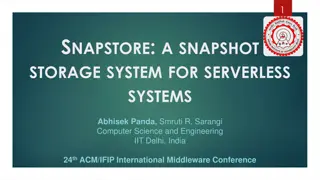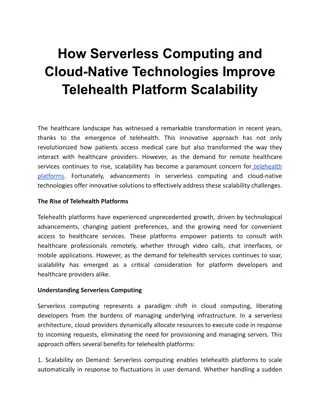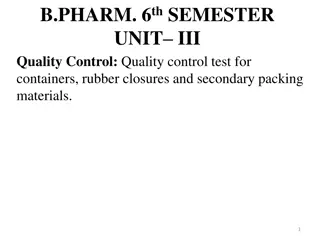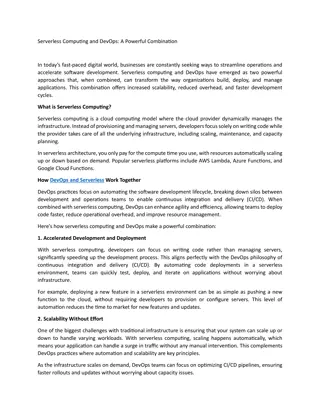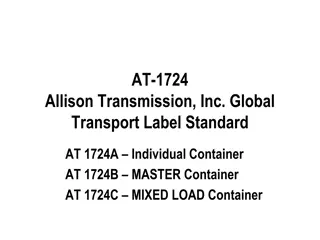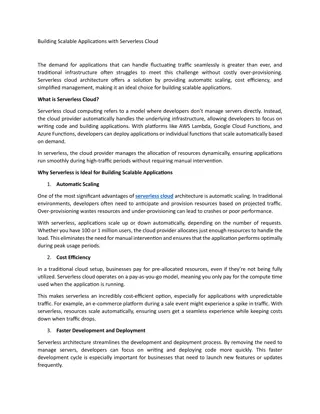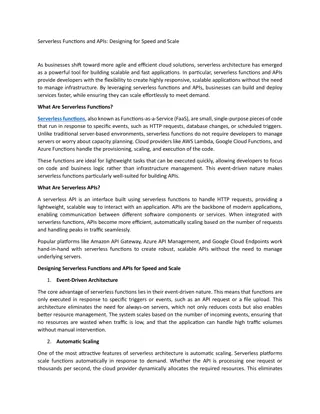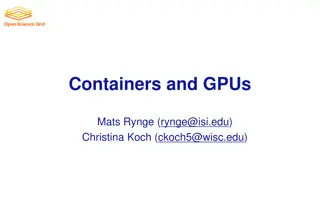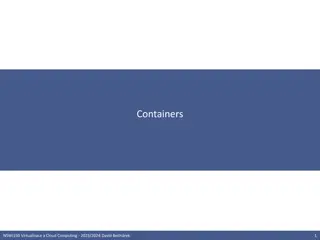Efficient Serverless Task Provisioning with Containers
Container shortage can lead to increased cold start times, impacting performance and costs. Learn how SOCK optimizes container provisioning using lightweight isolation primitives, caching strategies, and efficient storage techniques to improve resource utilization and scalability.
Download Presentation

Please find below an Image/Link to download the presentation.
The content on the website is provided AS IS for your information and personal use only. It may not be sold, licensed, or shared on other websites without obtaining consent from the author.If you encounter any issues during the download, it is possible that the publisher has removed the file from their server.
You are allowed to download the files provided on this website for personal or commercial use, subject to the condition that they are used lawfully. All files are the property of their respective owners.
The content on the website is provided AS IS for your information and personal use only. It may not be sold, licensed, or shared on other websites without obtaining consent from the author.
E N D
Presentation Transcript
SOCK: Rapid Task Provisioning with Serverless-Optimized Containers
Introduction Container shortage: Cold start time. Cold start is expensive. Tenant and provider want fast cold start time High-level language like python has many runtimes Two studies The costs of Linux provisioning primitives Study 876K Python projects from GitHub and analyzing 101K unique packages from the PyPI (Python package index) repository Sock Lightweight isolation primitives Zygotes-provisioning strategy avoid the python initialization cost Three-tier container caching
Container storage - File system Docker typically uses union file systems (e.g., AUFS) Simpler alternative is bind mounting which makes the same directory visible at multiple locations.
Logical isolation - Namespace Primitives fork() a. C. unshare() call b.
Performance isolation - Cgroup primitives Linux use cgroup interface to achieve the performance isolation Reusing the same cgroup is faster than the original one. Reusing is at least twice as fast as creating new cgroups each time.
Zygote-provisioning strategy Eliminate interpreter & package initialization cost Pack more handlers into memory
Lean container Storage: Sock use bind mounts + chroot Communication: every sock container contains a Unix domain socket. This one handle message between OpenLambda Manager and processes in container Isolation: pool of cgroup
Zygote-provisioning strategy - Generalized Zygotes Zygotes were first introduced on Android systems for Java applications Low latency invocation for python handlers that import libraries. Efficient sandbox initialization so that individual workers can achieve high steady-state throughput
Package-aware caching system 1. handler cache maintains idle handler containers in a paused state. Paused containers do not consume CPU but memory 2. Install cache: Reuse installed packages between lambdas 3. Imported cache: Reuse initialized Zygotes between lambdas H1(A) H2(A,B) H3(B) H3(B)
Evaluation Case Study: image Resizing 1. 2. 3. Read an image from S3 Use the pillow package to resize it write the output to S3 For each platform, we exercise cold-start performance by measuring request latency after re- uploading our code as a new handler.
